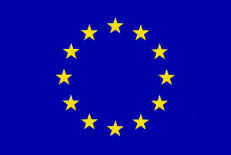The overall goal of FORGENIUS is “Improving access to FORest GENetic resources Information and services for end-USers” The EU Biodiversity Strategy is expected to call for a bold effort in conserving the three levels of biological diversity: genetic, species and ecosystem diversity. FORGENIUS project is designed to substantially strengthen the current genetic conservation strategies and to create a link between conservation and use, as it aims to characterise any site where forest trees are conserved in Europe and (at various levels of detail) populations of these forest tree species.
Forests provide essential societal services: in Europe, they cover 33% of land area and sequester 719 million tonnes CO2; in the EU, they provide jobs to over 3 million people and revenue to 16 million forest owners. These services rely on rich Forest Genetic Resources (Forest GenRes), which are managed in a coordinated way in Europe. The European Forest Genetic Resources Programme (EUFORGEN), founded in 1994, is the most advanced programme of its kind, worldwide. Its main achievement is a continent-wide collection of in situ Forest GenRes accessions (http://portal.eufgis.org/), called Genetic Conservation Units (GCUs). EFI hosts the secretariat for EUFORGEN.
FORGENIUS will develop methods and tools for greater insight into the characteristics and the value of Forest GenRes accessions presently existing in 35 European countries, and linked through the EUFGIS Information System (http://portal.eufgis.eu). FORGENIUS will create novel services for users within and outside the conservation communities and will significantly increase and improve data quantity and quality in the European Forest Genetic Resources (Forest GenRes) information system that describes all accessions. The project’s newly developed services will also allow end-users to characterise prospective new genetic conservation units. To fulfil these needs, FORGENIUS will use state-of-the-art indices ranging from genomics and phenotyping to remote sensing and predictive models. FORGENIUS will achieve the following goals: i) assessing genetic, phenotypic, and environmental diversity, as well as resilience of the GCU collection under climate change; ii) providing scientific evidence to support management decisions that promote the resilience and adaptability of the collection; iii) characterising GCUs and their GenRes to identify high-quality germplasm for use in breeding and forest plantations; iv) creating innovative data accessibility and modelling services for users within and outside the Forest GenRes conservation communities.
EFI leads WP7, communication and engagement of end users.
More information on the project website: http://www.forgenius.eu/ (last accessed 17.11.2022)
This project has received funding from the European Union’s Horizon 2020 research and innovation programme under grant agreement No 862221.

